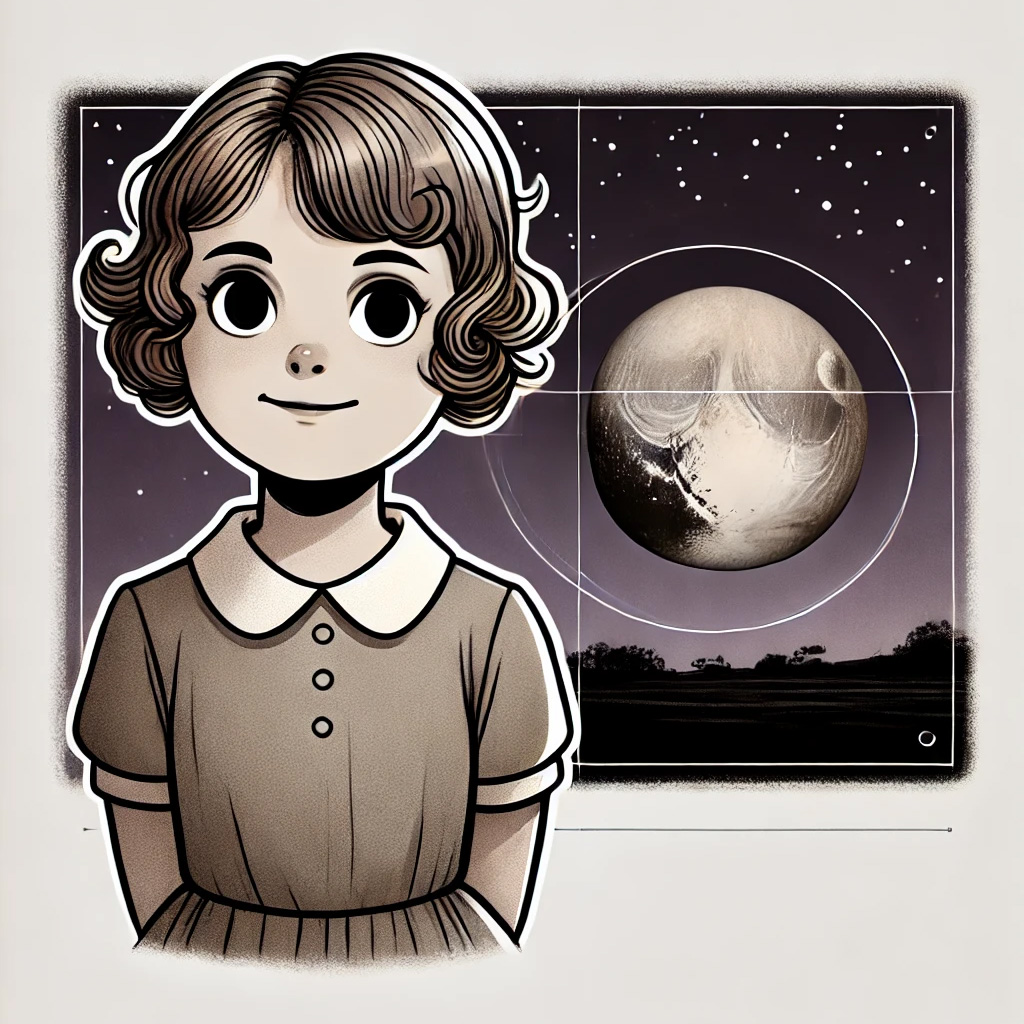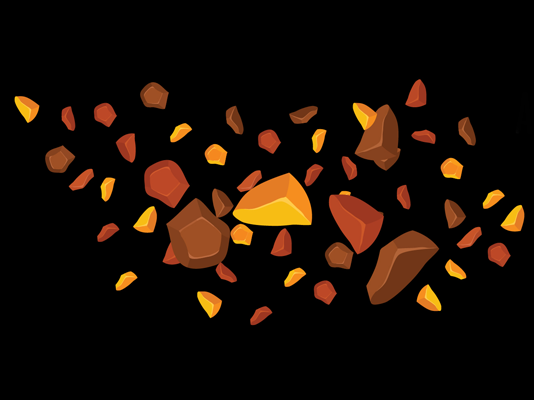Naming Pluto
Discovering a new planet comes with the unique challenge of naming it. On 18th February 1930 at the Lowell Observatory in Flagstaff, Arizona, American astronomer Clyde Tombough uncovered a world lurking in the dark depths of Solar System. This discovery of what became the Solar System's ninth planet, sparked a flurry of naming suggestions from the public. The chosen name, Pluto, was suggested by an 11 year old English schoolgirl named Venetia Burney. Although it may no longer be recognised as a planet, here's the story of how Pluto got its name.
Traditionally, all planets in the Solar System, except for Earth, are named after Roman or Greek mythological gods. This practice stems back to ancient times when Romans and Greeks believed that the objects in the night sky were their deities.Even planets discovered in not-so-ancient times - like Uranus and Neptune - continued the tradition of getting their names from mythological figures. Here's a quick rundown of why the planets are called what they're called:
- Mercury: Named after the Roman god of commerce and travel, reflecting its speedy orbit around the Sun. Its Greek equivalent god is Hermes.
- Venus: Named after the Roman goddess of love and beauty, owing to its bright and striking appearance. Its Greek equivalent is Aphrodite.
- Mars: Named after the Roman god of war, due to its reddish hue. Ares is Mars' Greek counterpart.
- Jupiter: Named after the king of the Roman gods, fitting its status as the largest planet. The ancient Greeks knew it as Zeus.
- Saturn: Named after the Roman god of agriculture. Unsure why as there are no fields on it. Its Greek equivalent is Cronus.
- Uranus: Discovered in the 18th century, named after the Greek ruler of the heavens. Its Roman equivalent is Caelus.
- Neptune: Named after the Roman god of the sea, because of its deep blue color. Poseidon is its Greek counterpart.
Before Pluto was chosen as the name for the Solar System's newest planet, several other names were considered. Members of the public took it upon themselves to come up with names and sent them into the Lowell Observatory who would ultimately decide on a name. Some names were more traditional than others!
- Mythological Figures: Names that continued the tradition of originating from mythology included Atlas, Artemis, Perseus, Vulcan, Minerva, Athena, Apollo, Osiris, Bacchus, Tantalus, Cronus and Frebus.
- Other Names: Lowell, Percival, and Constance were proposed to honour the observatory's founder and his widow. Other suggestions included names like Jean (named after somebody's two year old son!), Mazda after a light bulb brand, or pop culture references like Amos or Andy from contemporary radio shows.
On the morning of 14th March 1930, in Oxford, England, 11 year old Venetia Burney learned of the discovery of the new planet during breakfast with her mother and grandfather. The family speculated about what the planet should be called. Venetia, who had been learning about mythology and the planets at school, suggested that it should be called Pluto. In Roman mythology, Pluto is the god of the underworld, and the new planet's huge distance from the Sun meant that it would be in a dark and gloomy part of space. At the time, it was the most distant object known to exist in the Solar System.
Venetia's grandfather, Falconer Madan, knew a professor at Oxford University and left him a note about Venetia's suggestion. The professor sent the name in a telegram to the Lowell Observatory on behalf of Venetia and her grandfather.
Lowell Observatory narrowed down the preferred names for the new planet to three candidates: Minerva, Cronus and Pluto. Minerva was the favourite, but was also the name of an asteroid. Cronus was the Greek equivalent of the Roman god Saturn, so was already a planet. Also, an astronomer who suggested the name Cronus, Thomas Jefferson Jackson See, was something of a trouble-maker and wasn't well-liked in the astronomy community. But there were no such problems with Pluto, and it won the vote to become the name of the new planet. As a bonus, the first two letters of Pluto are the initial of Percival Lowell, the astronomer who founded the Lowell Observatory and began the search for a planet beyond Neptune.
Venetia wasn't the only person to suggest the name Pluto, but she was the first, so she was credited with giving the ninth planet its name. To honour this contribution, an instrument on board the New Horizons spacecraft bears her name. The Venetia Burney Student Dust Counter (VNSDC) measures dust impacts in outer space during New Horizons' trip to Pluto and beyond.

As an interesting coincidence, in the same year as Pluto was discovered and named, Mickey and Minnie Mouse's dog Pluto made his debut. He made his first appearanace in a cartoon called The Picnic in October 1930, although was known as Rover in it. The following year, he appeared again in The Moose Hunt, but now had the name Pluto.
Naming Pluto - The Movie
The story of how Pluto got its name is told in a short documentary called Naming Pluto by film-maker Ginita Jimenez . This film includes an interview with Venetia Phair (born Burney), the schoolgirl who came up with Pluto's name. Find out more here!





